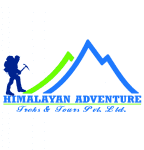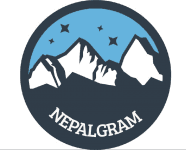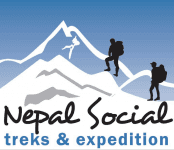Things to carry while trekking the Himalayas
Within the Nepalese Himalayas, it becomes of a case of ‘pick your peak,’ with multiple routes to choose from and plenty of peaks to summit or base camps calling to be explored. Each route within the Nepalese Himalayas – from the Everest Base Camp Trek to the Upper Mustang Trek – offer their own challenges, which will all vary depending on what itinerary you select.
With regards to technical climbing requirements, there are plenty of routes that beginners can trek along, including the Poon Hill trek or the Langtang Valley trek. While these routes will be a challenge both physically and mentally, anyone with a moderate level of fitness should be able to trek along a number of routes in the Nepalese Himalayas. The more challenging treks such as the Manaslu trek, the Three Peaks trek, or the Makalu Base Camp trek, require experience with extreme altitude hikes and, depending on the season, you may need to use crampons or an ice axe in some areas.
If you have your sights set on going beyond the Everest Base Camp trek and are hoping to reach the summit of Everest, you'll need to be an experienced mountaineer with years of experience and must possess a number of key skills. A few of the essential skills you must possess include the ability to read the weather conditions and the ability to predict hazards, having a sharp understanding of how your body works in extreme temperatures, knowledge of how to fit and adjust a harness, and the ability to use crampons or an ice axe on certain terrains. Summiting Everest is incredibly dangerous, and Mount Everest aspirants should take all of the necessary precautions and complete the required training before attempting to summit the tallest mountain in the world. This particular journey to Mount Everest is fraught with risk and should not be attempted without the right gear or knowledge.
No matter what route you trek across, you will need to make sure you are prepared with the right gear, including clothing, boots, and walking poles, and to make sure you are as physically and mentally as prepared as possible. If you’ve already booked your tour or flights to embark on this life-changing journey, then the next step is to start thinking about what to pack.
Within the Himalayas, there are many intricate networks of short and long-distance routes with varying lengths, difficulties, types of terrain, elevations, and trail conditions. But one thing they all have in common is the type of gear and clothing you will need to bring.
Before you start packing, make sure you triple check with your tour operator, as they may supply some of the items on this list.
Packing list for trekking the Himalayas
To make sure you have the basics covered, we’ve compiled a list of everything you should pack for a trek in the Nepalese Himalayas.
Footwear
- Gaiters to keep your ankles and feet dry
- Multiple pairs of socks (thick and thin) for both warm and cold climates
- Well-worn hiking boots that are waterproof and have ankle support
- Sneakers to wear at the campsite in the evening
Clothing to keep you warm
- A beanie
- Long thermal pants or underwear (keep in mind you will want to dress in layers, so you can shed a layer when it gets too hot)
- Waterproof pants
- Hand and foot warmers
- A scarf or balaclava
- Mittens and gloves (pack at least two pairs in case one pair gets wet)
- Fleece pants
- Down jacket
- Fleece jacket
Clothing for everyday
- Bandana for when it gets dusty or windy
- Tracksuit pants or yoga pants for relaxing in the evening
- Long pants that can be unzipped to reveal a shorter length
- Lightweight, waterproof shorts
- A cap
- Long and short sleeve t-shirts
- A light windbreaker jacket or a waterproof jacket
First aid
- Panadol or aspirin
- Diarrhoea medicine
- Prescription drugs (check with your doctor before you travel)
- Altitude sickness medication
- Plasters
- Hand sanitizer
Others
- Trekking poles to help keep your balance
- Camera
- Sleeping bag liner
- Packing cubes to organise your clothes
- General toiletries including shampoo, conditioner, toothpaste, soap, toothbrush, floss, deodorant
- Sunscreen
- A head torch and spare batteries
- Eyeglasses or contact lenses
- Portable charger
- Lip balm to prevent windburn
- A good quality sleeping bag made for sub-zero temperatures
- Feminine products
- Toilet paper
- Insect repellent
- Wet wipes
- Large backpack for porters to carry
- A day pack
Optional extras
- Snacks
- Matches or a lighter
- Sunglasses
- Pen and notebook
- Playing cards
- Books
Visas and documents
- Visas and flights printed out
- Proof of your travel insurance
- Passport and at least 4 extra passport photos
Nepalese Himalayas weather
| JAN | FEB | MAR | APR | MAY | JUN | JUL | AUG | SEP | OCT | NOV | DEC | |
|---|---|---|---|---|---|---|---|---|---|---|---|---|
| Average °C | -8 | -8 | -5 | -1 | 4 | 8 | 9 | 9 | 7 | 2 | -2 | -5 |
| Average °F | 17 | 17 | 23 | 30 | 39 | 46 | 48 | 48 | 44 | 35 | 28 | 23 |
| High °C | -2 | -3 | 1 | 4 | 9 | 12 | 12 | 11 | 10 | 6 | 2 | 0 |
| High °F | 28 | 26 | 33 | 39 | 48 | 53 | 53 | 51 | 50 | 42 | 35 | 32 |
| Low °C | -22 | -23 | -18 | -12 | -8 | -6 | -3 | -4 | -6 | -10 | -14 | -17 |
| Low °F | -7 | -9 | 0 | 10 | 17 | 21 | 26 | 24 | 21 | 14 | 6 | 1 |
Nepalese Himalayas routes
- Poon Hill. Distance: 51 km, average duration: 4-5 days
- Annapurna Base Camp. Distance: 110 km, average duration: 7-10 days
- Everest Base Camp. Distance: 130 km, average duration: 12-16 days
- Manaslu Circuit. Distance: 177 km, average duration: 13-17 days
- Makalu Base Camp. Average duration: 18-22 days
- Upper Mustang Trek. Average duration: 10-12 days
- Langtang Valley. Distance: 120 km, average duration: 7-11 days
- Three Passes Trek. Distance: 166 km, average duration: 18-20 days
Nepalese Himalayas tours
Nepalese Himalayas tour operators

Sherpa Expedition & Trekking Pvt. Ltd.
365 reviews

Sherpa Expedition Teams
1,811 reviews

Mega Mount Treks and Expedition Pvt.Ltd.
7 reviews

Alpine Club of Himalaya
87 reviews

White Hill Adventure Treks and Expedition Pvt Ltd
49 reviews

Himalayan Adventure Treks & Tours
87 reviews

Female Guide Holiday
77 reviews

Glorious Himalaya Trekking Pvt. Ltd.
38 reviews

Asian Heritage Treks & Expeditions
138 reviews

Nepalgram Adventure
26 reviews

Nepal Social Treks
75 reviews

Peregrine Treks and Expedition Pvt Ltd
289 reviews























